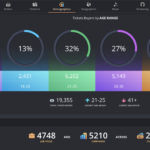FoodShot Global is digging up innovation for soil health as part of its first prize competition
FoodShot Global, a prize platform devoted to transforming the world’s food and agriculture industries, has awarded the first round of prizes for its Innovating Soil 3.0 competition.
Trace Genomics, a startup developing an analytics service for soil health to optimize the use of farmland, has received an undisclosed investment from FoodShot’s investment partner, S2G Ventures.
Additional awards of $250,000 were given to Keith Paustian to speed up the global adaptation of his COMET tool systems, which provide farmers with metrics and information on regenerative farming; and Gerlinde De Deyn, for her work studying biodiversity over time.
A $35,000 award was given to Dorn Cox to support the development of his open-source data project that will look to catalog knowledge around agriculture techniques and distribute that information freely to a global community of farmers.
“I founded FoodShot Global envisioning a new way to harness the power of innovation, capital, and the collaborative spirit of the world’s leading stakeholders to effect change,” said FoodShot Global founder and chairman Victor Friedberg. “We chose to start with soil because any future that imagines 10 billion people eating healthy and sustainably with equal access will require healthy soil. The three people we announced today are all groundbreakers whose inspired work lays the foundation for the next generation of solutions to the urgency we now face as a civilization. I couldn’t be more impressed and inspired by these inaugural FoodShot Global award winners and look forward to sharing what they’re doing with a larger audience.”
Powered by WPeMatico
The Ticket Fairy is tech’s best hope against Ticketmaster
Ticketmaster’s dominance has led to ridiculous service fees, scalpers galore and exclusive contracts that exploit venues and artists. The moronic approval of venue operator and artist management giant Live Nation’s merger with Ticketmaster in 2010 produced an anti-competitive juggernaut. It pressures venues to sign ticketing contracts under veiled threat that artists would otherwise be routed to different concert halls. Now it’s become difficult for venues, artists and fans to avoid Ticketmaster, which charges fees as high as 50% that many see as a ripoff.
The Ticket Fairy wants to wrestle away from Ticketmaster control of venues while giving fans ways to earn tickets for referring their friends. The startup is doing that by offering the most technologically advanced ticketing platform that not only handles sales and check-ins, but acts as a full-stack Salesforce for concerts that can analyze buyers and run ad campaigns while thwarting scalpers. Co-founder Ritesh Patel says The Ticket Fairy has increased revenue for event organizers by 15% to 25% during its private beta focused on dance music festivals.
Now after 850,000 tickets sold, it’s officially launching its ticketing suite and actively poaching venues from Eventbrite as it moves deeper into esports and conventions. With a little more scale, it will be ready to challenge Ticketmaster for lucrative clients.
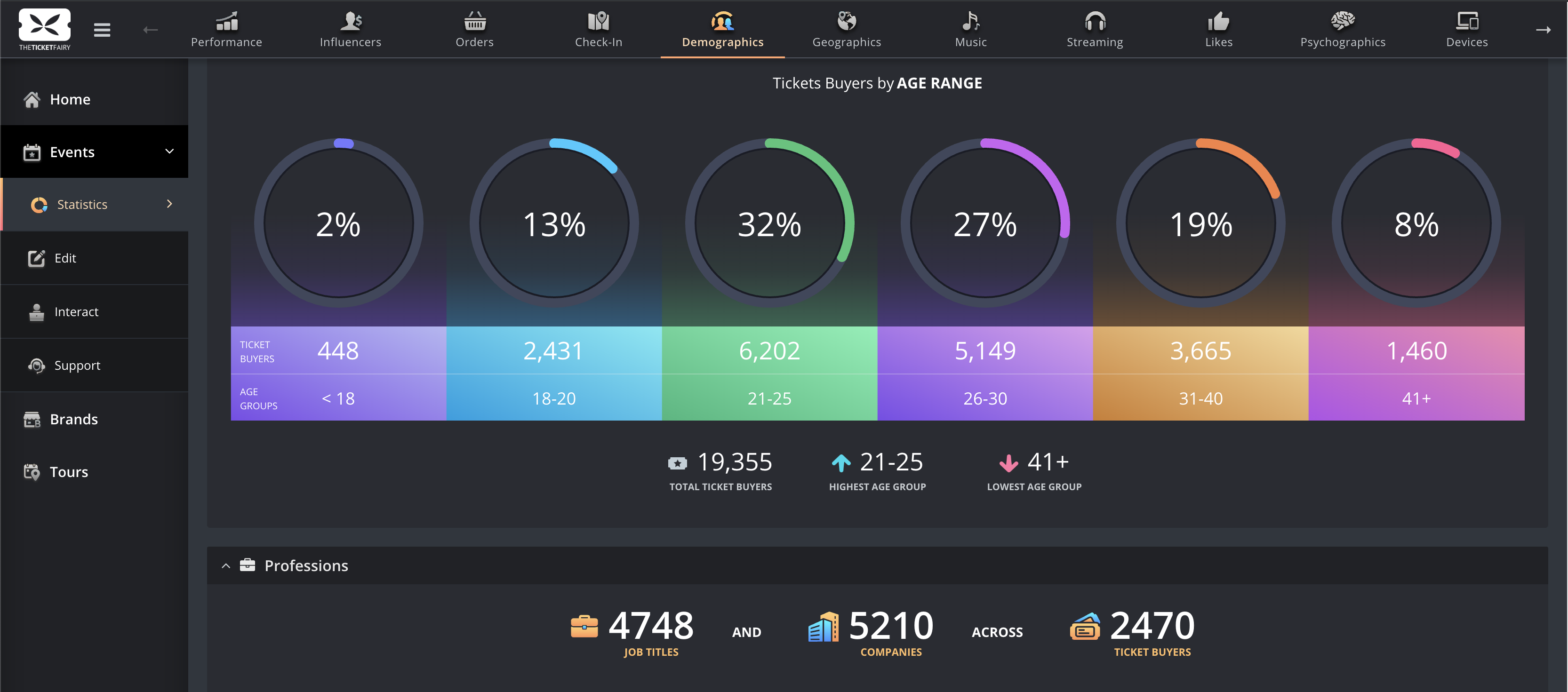
Ritesh’s combination of product and engineering skills, rapid progress and charismatic passion for live events after throwing 400 of his own has attracted an impressive cadre of angel investors. They’ve delivered a $2.5 million seed round for Ticket Fairy, adding to its $485,000 pre-seed from angels like Twitch/Atrium founder Justin Kan, Twitch COO Kevin Lin and Reddit CEO Steve Huffman.
The new round includes YouTube founder Steve Chen, former Kleiner Perkins partner (and Mark’s sister) Arielle Zuckerberg and funds like 500 Startups, ex-Uber angels Fantastic Ventures, G2 Ventures, Tempo Ventures and WeFunder. It’s also scored music industry angels like Serato DJ hardware CEO AJ Bertenshaw, Spotify’s head of label licensing Niklas Lundberg, and celebrity lawyer Ken Hertz, who reps Will Smith and Gwen Stefani.
“The purpose of starting The Ticket Fairy was not to be another Eventbrite, but to reduce the risk of the person running the event so they can be profitable. We’re not just another shopping cart,” Patel says. The Ticket Fairy charges a comparable rate to Eventbrite’s $1.59 + 3.5% per ticket plus payment processing that brings it closer to 6%, but Patel insists it offers far stronger functionality.
Constantly clad in his golden disco hoodie over a Ticket Fairy t-shirt, Patel lives his product, spending late nights dancing and taking feedback at the events his clients host. He’s been a savior of SXSW the past two years, injecting the aging festival that shuts down at 2am with multi-night after-hours raves. Featuring top DJs like Pretty Lights in creative locations cab drivers don’t believe are real, The Ticket Fairy’s parties have won the hearts of music industry folks.

The Ticket Fairy co-founders. Center and inset left: Ritesh Patel. Inset right: Jigar Patel
Now the Y Combinator startup hopes its ticketing platform will do the same thanks to a slew of savvy features:
- Earn A Ticket – The Ticket Fairy supercharges word of mouth marketing with a referral system that lets fans get a rebate or full-free ticket if they get enough friends to buy a ticket. Indeed, 30% of ticket buyers are now sharing a Ticket Fairy referral link, and Patel says the return on investment is $30 in revenue for each $1 paid out in rewards, with 10% to 25% of all ticket sales coming from referrals. A public leaderboard further encourages referrals, with those at the top eligible for backstage passes, free merch and bar tabs. And to prevent mass spamming, only buyers, partners and street teamers get a referral code.
- Creative Payment Options – The startup offers “FreeFund” tickets for free events that otherwise see huge no-show rates. Users pay a small deposit that’s refunded when they scan their ticket for entry, discouraging RSVPs from those who won’t come. Buyers can also pay on layaway with Affirm or LayBuy and then earn a ticket before their debt is due.
- Anti-Scalping – The Ticket Fairy offers identity-locked tickets that must be presented with the buyer’s ID on arrival, which means customers can’t scalp them. Instead, the startup offers a waitlist for sold-out events, and buyers can sell their tickets back to the company, which then redistributes them to a specific friend or whoever’s at the top of the waitlist at face value with a new QR code. Patel says client SunAndBass Festival hasn’t had a scalped ticket in five years of working with the ticketer.
- Clever Analytics – Never wasting an opportunity, The Ticket Fairy lets events collect contact info and demand before ticket sales start with its pre-registration system. It can create multiple variants of ticketing sites designed for different demographics, like rock versus dance fans for a festival, track sales and demographics in real time and relay instant stats about check-ins at the door. Integration of email managers like Mailchimp and sales pixels like Facebook plus the ability to instantly retarget people who abandoned their shopping via Facebook Custom Audience ads makes marketing easier. And all the metrics, budgets and expenses are automatically organized into financial reports to eliminate spreadsheet busywork.

Still, the biggest barrier to adoption remains the long exclusive contracts Ticketmaster and other giants like AEG coerce venues into in the U.S. Abroad, venues typically work with multiple ticket promoters who sell from the same pool, which is why 80% of The Ticket Fairy’s business is international right now. In the U.S., ticketing is often handled by a single company, except for the 8% of tickets artists can sell however they want. That’s why The Ticket Fairy has focused on signing up non-traditional venues for festivals, trade convention halls, newly built esports arenas, as well as concert halls.
“Coming from the event promotion background, we understand the risk event organizers take in creating these experiences,” The Ticket Fairy’s co-founder and Ritesh’s brother Jigar Patel explains. “The odds of breaking even are poor and many are unable to overcome those challenges, but it is sheer passion that keeps them going in the face of financial uncertainty and multi-year losses.” As competitors’ contracts expire, The Ticket Fairy hopes to swoop in by dangling its sales-boosting tech. “We get locked out of certain things because people are locked in a contract, not because they don’t want to use our system.”
The live music industry can be brutal, though. Events can have slim margins, organizers are loathe to change their process and it’s a sales-heavy process convincing them to try new software. But while the record business has been redefined by streaming, ticketing looks a lot like it did a decade ago. That makes it ripe for disruption.
“The events industry is more important than ever, with artists making the bulk of their income from touring instead of record sales, and demand from fans for live experiences is increasing at a global level,” Jigar concludes. “When events go out of business, everybody loses, including artists and fans. Everything we do at The Ticket Fairy has that firmly in mind – we are here to keep the ecosystem alive.”
Powered by WPeMatico
Destiny 2 goes free to play and gains cross-saving on all platforms
Bungie aims to fortify the popular but flagging Destiny 2 with an expanded free-to-play plan and universal cross-platform saving, the company announced today. It’s an interesting and player-friendly evolution of the “games as a service” model, and other companies should take note.
The base game, which is to say the original campaign and the first year of updates, will be available on PC, Xbox One, PlayStation 4, and Google Stadia. You can play as much as you want, and your progress will be synced to your account, so you can do some easy patrols on console and then switch to your PC’s mouse and keyboard for the more difficult raids.
The PS4 cross-save ability is a surprise, since Sony has resisted this sort of thing in the past and rumors had it before the announcement that they would be left out of the bargain. It’s heartening to see this level of cooperation, if that’s what it is, in the new gaming economy.
Confirmed! https://t.co/WKWtPZ7mtD
— PlayStation (@PlayStation) June 6, 2019
As part of Bungie’s separation from Activision, which published Destiny 2 to begin with, the game is now switching over to Steam on the PC. That’s probably a good thing for most, and you won’t lose any progress. It’s also being renamed “Destiny: New Light,” because why not?
Importantly, no platform will have any content advantage over another — no Xbox-specific guns or PC-specific levels. At a time when consoles are fighting one another on the basis of exclusives, this is a breath of fresh air.
The news was announced in a stream this morning, though players got a sneak peak when a publication I shall not name posted it slightly early. But we also learned more ahead of Bungie’s announcement when Google’s Stadia event showed the game coming to the streaming service in free form.
The developers at Bungie reveal Destiny 2: Shadowkeep.
A new chapter for Destiny 2 and the studio begins this September.
Watch the full ViDoc: https://t.co/A1dBgdxgMQ pic.twitter.com/nHbAW9CuYA
— Bungie (@Bungie) June 6, 2019
Destiny 2 came out two years ago and has had a number of expansions — and has also been free for limited times or platforms a handful of times. The base game was really a bit threadbare and honestly may not convince new players that it’s worth it to pay. But the price is right and if you like the basic gameplay the expansions, which improved considerably on the game and added a lot of contents, can be bought year by year.
The move is obviously meant to help Destiny 2 compete with other games-as-services, such as the constantly improving Warframe and youth-devouring Fortnite. And it’s a good test bed for the new cross-platform economy that gamers are beginning to demand. You’ll be able to test it out for yourself on September 17, when the switchover is set to take effect — more details should be available well ahead of the relaunch.
Powered by WPeMatico
Instagram one-ups TikTok with karaoke lyrics
Lip-syncing jumpstarted TikTok’s rise to the center of teen culture, arguably displacing Instagram . Now the Facebook-owned app is striking back with a new feature that lets you displays lyrics on your video Story synced to a soundtrack you’ve added with the Music sticker. Lyrics could help creators and their fans sing along, and the visual flare could make the amateur MTV content more watchable.
Instagram scored a big endorsement from teen scare-pop phenomenon Billie Eilish who’s featured in the demo video for Story lyrics, which are now available in all the countries where Instagram Music has launched including the US, Germany, and France.
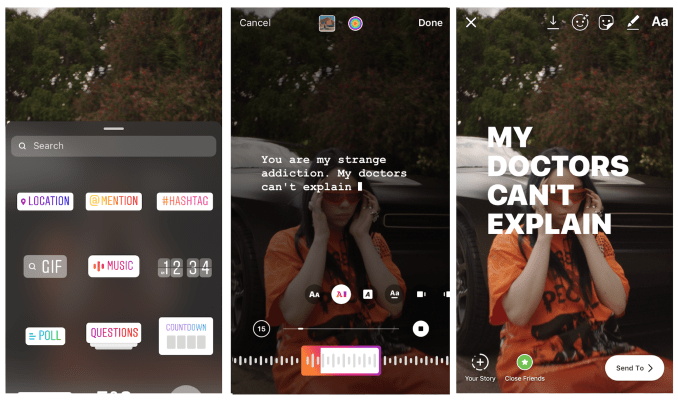
To play with the feature, first select the Music lens type (amidst Boomerang and other options) before you shoot or the Music sticker after. Once you pick a song, you’ll see lyrics pop up which can help you cue the segment of the music you want to play. Then you can cycle through a bunch of animation styles like traditional karaoke teleprompter, a typewriter version that preserves mystery by only revealing lyrics as they’re sung, and big flashy billboard font.
“Music can be a big part of expression on Instagram – between adding music to Stories, connecting with artists, sending song recs back-and-forth, there are lots of ways to connect with music on IG” an Instagram spokesperson tells me. “Now, we’re building on our music features and introducing the ability to add lyrics when you add a song to your story.” As with pretty much everything Instagram launches, it was first dug out of Android code and revealed to the world by frequent TechCrunch tipster and reverse engineering master Jane Manchun Wong. She first spotted Lyrics in March and we wrote about the prototype in April.
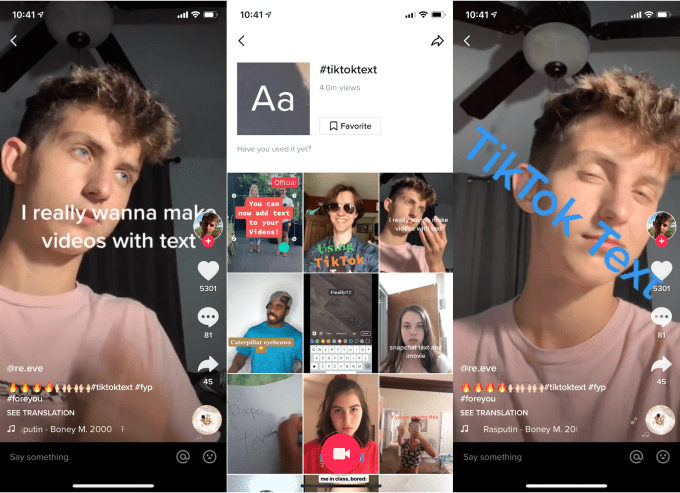
But TikTok isn’t waiting up. Today it launched its own text feature for adding overlaid captions to videos. Typically, creators had to use Snapcat, Instagram Stories, or desktop editing software to add text. Creators are sure to find plenty of hilarious use cases for text on TikTok, and it could help replace the common trope of writing captions on paper and holding them up during clips.
All of these features are about keeping social video from going stale. The manicured, painstakingly posed Instagram aesthetic is over, as The Atlantic’s Taylor Lorenz deftly identified. Fans are sick of perfection, which breeds envy and feels plastic or inauthentic. Comedy, absurdity, and the rough edges of reality are becoming the new ‘look’ of social media. Tools to overlay lyrics and text give creators more freedom to express complex jokes or just act silly. The popularity of Billie Eilish’s own dirtbag chic fashion and willingness to reveal her own insecurities exemplifies this shift, so it’s smart Instagram is using her as the face of its next wave of visual communication.
Powered by WPeMatico
Facebook plans June 18th cryptocurrency debut. Here’s what we know
Facebook is finally ready to reveal details about its cryptocurrency codenamed Libra. It’s currently scheduled for a June 18th release of a white paper explaining its cryptocurrency’s basics, according to a source who says multiple investors briefed on the project by Facebook were told that date.
Meanwhile, the company’s Head of Financial Services & Payment Partnerships for Northern Europe Laura McCracken told German magazine WirtschaftsWoche‘s Sebastian Kirsch that the white paper would debut June 18th, and that the cryptocurrency would indeed be pegged to a basket of currencies rather than a single one like the US dollar to prevent price fluctuations. Kirsch tells me “I met Laura at Money2020 Europe in Amsterdam on Tuesday” after she watched fellow Facebook payments exec Paulette Rowe’s talk. “She told me that she wasn’t involved in what David Marcus’ [Facebook Blockchain] team was doing. But that I’d have to wait until June 18th when a whitepaper was supposed to be published to get more details.” She told him she thought the date was already a publicly known fact, which it wasn’t.
Then, yesterday TechCrunch received a request for a June 18th news embargo from one of the communications managers for Facebook’s blockchain team. The Information’s Alex Heath and Jon Victor also reported yesterday that Facebook’s cryptocurrency project would launch later this month.

Facebook declined to comment on any news regarding its cryptocurrency project. There is always a chance that the announcement date could fluctuate if snafus with partners or governments arise. One source says Facebook is targeting a 2020 formal launch of the cryptocurrency
The debut of Libra or whatever Facebook decides to call it could unlock a new era of commerce and payments for the social network. It could be used to offer low or no-fee payments between friends or remittance of earnings to familys from migrant workers abroad who are often gouged by money transfer services.
Sidestepping credit card transaction fees could also allow Facebook’s cryptocurrency to offer a cheaper way to pay merchants for traditional ecommerce, or facilitate microtransactions for a la carte news articles or tipping of content creators. And a better understanding of who buys what or which brands or popular could aid Facebook in ad measurement, ranking, and targeting to amplify its core business.
How Facebook’s cryptocurrency works
Here’s what we know about Facebook’s blockchain project:
Name: Facebook will likely use the Libra codename as the public facing name for its cryptocurrency, which The Information reports won’t be called GlobalCoin as the BBC had claimed. Facebook has registed a company called Libra Networks in Switzerland for financial services, Reuters reported. Libra could be a play on the word LIBOR, an abbreviation for the London Inter-bank Offered Rate that’s used as a benchmark interest rate for borrowing between banks. LIBOR is for banks, while Libra is meant to be for the people.
Token: The cryptocurrency will be a stablecoin — a token designed to have a stable price to prevent discrepancies and complications due to price fluctuations during a payment or negotiation process. Facebook has spoken with financial institutions regarding contributing capital to form a $1 billion basket of multiple international fiat currencies and low-risk securities that will serve as collateral to stabilize the price of the coin, The Information reports. Facebook is working with various countries to pre-approve the rollout of the stablecoin.
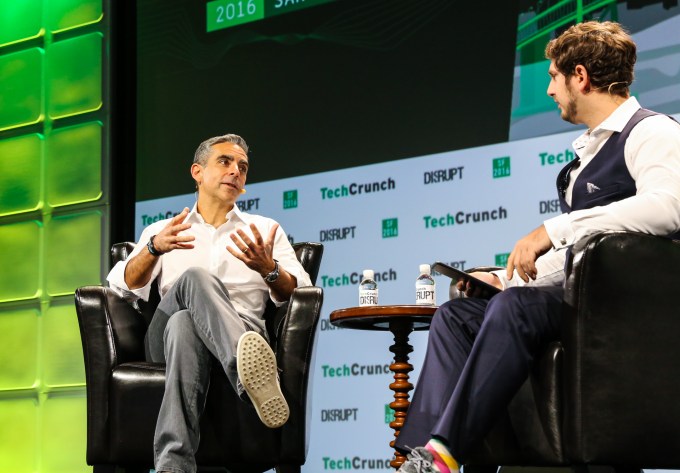
The head of Facebook’s Blockchain team David Marcus (left) speaks at TechCrunch Disrupt 2016
Usage: Facebook’s cryptocurrency will be transferrable with zero fees via Facebook products including Messenger and WhatsApp. Facebook is working with merchants to accept the token as payment, and may offer sign-up bonuses. The Information also reports Facebook also wants to roll out physical devices for ATMs so users can exchange traditional assets for the cryptocurrency.
Team: Facebook’s blockchain project is overseen by former PayPal President and VP of Facebook Messenger David Marcus. His team includes former Instagram VP of product Kevin Weil, Facebook’s former corporate head of treasury operations Sunita Parasuraman who The Information reports will oversee the token’s treasury, and many elite engineers cherrypicked from Facebook’s ranks. They’ve been working in a dedicated part of Facebook’s headquarters off-limits to other employees to boost secrecy, though the nature of the partnerships needed for launch have led to many leaks.
Governance: Facebook is in talks to create an independent foundation to oversee its cryptocurrency, The Information reports. It’s asking companies to pay $10 million to operate a node that can validate transactions made with its cryptocurrency in exchange for a say in governance of the token. It’s possible that node operators could benefit financially too. By introducing a level of decentralization to the governance of the project, Facebook may be able to avoid regulation related to it holding too much power over a global currency.
Powered by WPeMatico
Here are all of the trailers from today’s Google Stadia announcement
You know the deal: a console is nothing without games. Same goes for streaming plans. Google jumped the gun on E3 this week with its Stadia Connect, a live stream that takes more than a page or two from Nintendo’s Direct offering. The event offered a little more insight into pricing, availability and specs — and, mostly importantly, showed off some of the titles coming to the streaming platform.
The list includes some familiar franchises and a couple of exclusives, which will be available for a $10 a month subscription fee or for individual purchase.
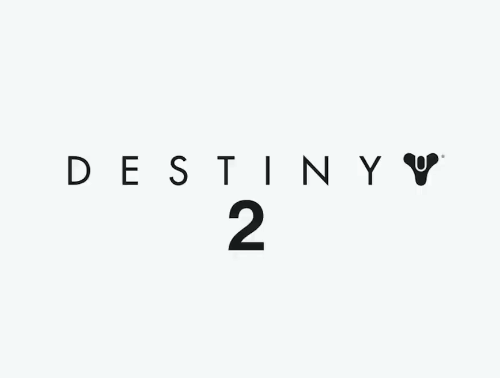
The first, Moonshine Studios/Coat Sink’s Get Packed will be a Stadia exclusive at launch. The title brings Overcooked-style game play to furniture packing — arguably the most frustrating thing in the world. The co-op title allows up to four players to participate, because you know how easy it is recruiting friends to help you move.

Bungie’s received Destiny sequel will be arriving on Stadia. The first-person shooter includes the new chapter, Shadowkeep, which features a return to the lunar surface.
Another Stadia exclusive, the single-player puzzle adventure title Gylt features some dark, supernatural gameplay. The Tequila Works title centers on a young girl’s search for her missing cousin.
The D&D-based RPG Baldur’s Gate III will be coming to both Stadia and PC.
Google closed things out with a sizzle reel focused on the breadth of titles coming to the platform, including games from top-tier publishers like Ubisoft, Take 2, SquareEnix, Warner Bros., Bandai Namco and Bethesda.
The service launches this November.
Powered by WPeMatico
Here’s how Google Stadia performs depending on your internet connection
Google is introducing more about the launch of its Stadia streaming gaming service today, and VP Phil Harrison gave us performance specifics today so you can see exactly how the company thinks the service will perform based on what kind of internet connection you have. It tops out at an impressive 4K resolution, with HDR color, 60fps frame rate and 5.1 surround sound, but you’ll have to have at least a 35 Mbps connection to get that level of quality.
Meanwhile, at 20 Mbps you’ll get full HD 1080p output, while retaining HDR video, 60fps and 5.1 surround. And Google has optimized for smoothness of stream by retaining 60 fps all the way down to its recommended minimum bandwidth connection quality of 10 Mbps (and even potentially below that based on this chart). You’ll only get 720p streams at that level, however, and stereo instead of surround sound.
“With Stadia, our goal is to make gaming more accessible for everyone,” is how Harrison framed it, and that applies to its range of connection support as well as its device availability. At launch you’ll be able to play Stadia games on your TV (via Chromecast Ultra), desktop, laptop and tablet (via browsers) and on smartphones, though only Pixel phones to begin with starting with Pixel 3 and Pixel 3a (via dedicated Stadia app).
Powered by WPeMatico
Every Final Fantasy soundtrack is now on Spotify and Apple Music
Just in time for your road trip to LA for E3, Square Enix has suddenly made the soundtracks to every main Final Fantasy game available for free to listen to online. Just log into Spotify or Apple Music and search for “Final Fantasy original soundtrack.”
I just checked and Final Fantasies I-XV and some sub-sequels are all there, some in original and remastered versions, plus plenty of popular (or not) side titles like FF Tactics (come out on Switch already!) and Type-0. There’s even the soundtrack for the ill-considered 2001 movie, The Spirits Within.
No X-2, unfortunately for the few who liked that one (usually very intensely), and a few of the other non-main entries (like Tactics Advance and A2) are missing right now but perhaps only late to arrive. So it’s not every every Final Fantasy, but close enough that I don’t feel bad about putting it in the headline.
There’s been no mention of it on Square Enix’s social media channels, even the Final Fantasy-specific one. But it likely has to do with a special concert being given this week for FF VII, the remake of which is almost certain to appear at E3.
We have a very special guest announcement to make!
Yoshinori Kitase, director of the original #FinalFantasy VII, is hosting the upcoming FINAL FANTASY VII – A Symphonic Reunion concert!
Tickets are running out, so head to Ticketmaster now to get yours: https://t.co/8PSc1cgfrD https://t.co/gZUnXMPKLK
— FINAL FANTASY (@FinalFantasy) June 5, 2019
I’ve listened to a few tracks and it all seems legit. The only thing is that many of the titles are in Japanese — so it might be difficult to pick out your favorite character’s theme or what have you if you don’t, you know, speak that language.
Now you can at last create a greatest hits of Nobuo Uematsu’s FF work and access it from anywhere. It’s been a long time coming.
Powered by WPeMatico
Sources: Bird is in talks to acquire scooter startup Scoot
If you are among those who thought that the scooter market sounded a little overhyped and overcrowded, we’ve gotten wind of a deal that could point to some impending consolidation. The on-demand scooter business Bird has agreed to acquire Scoot, a smaller two-wheeled mobility startup, sources tell TechCrunch.
The stage of the negotiations is not clear although from what our sources tell us, it sounds like the deal is not closed. Contacted for a response, both Scoot and Bird said they declined to comment on speculation.
If accurate, it would be far from a merger of equals. Scoot was last valued at around $71 million, having raised about $47 million in equity funding to date from Scout Ventures, Vision Ridge Partners, angel investor Joanne Wilson and more.
Bird is significantly larger. Led by chief executive officer Travis VanderZanden, earlier this year the company was working on a round of financing reportedly worth $300 million at a $2.3 billion valuation. We’ve been able to confirm that this round has now closed, although we don’t yet know the final amount or who the investors are. (Backers of Bird include Sequoia, Index, Charles River Ventures, Tusk Ventures, Upfront Ventures and dozens more.) Scoot would be Bird’s first full acquisition.
Scooting toward consolidation
It’s still very early days in the scooter market in terms of consumer adoption, but that hasn’t stopped people from launching a lot of startups and raising funding to capitalise on what many believe will be a big opportunity longer term.
That promise is made bigger by the regulatory structure of the scooter market. Similar to their approach to bikes, many cities restrict the number of licenses they give out to companies to run on-street, hourly scooter services. Winning a license can give a company a near-monopoly on building a business in that city.
It also means that a combination between two companies whose geographic footprints do not overlap becomes a much cheaper and faster way of instantly creating a bigger business.
Notably, Scoot has a license to operate a pick-up/drop-off street service in the key market of San Francisco — where it competes with Skip, the only other licensed operator in the city. (Note: Bird last month did start up business again in SF, but only for the less popular offer of monthly rentals.)
What’s more, the two startups do not have any overlap in the rest of their footprints. Scoot is active in Barcelona, Spain and Santiago, Chile. Bird, on the other hand, has launched in about 100 cities spanning the U.S. and Europe, but its list does not include any of the cities where Scoot has rolled out its service.

Bird announced its new, two-seated electric vehicle earlier this week
On the vehicle front, the story is a little different. The two are providing, more or less, the same kinds of vehicles. Scoot has built out a network focused primarily on electric push scooters, seated scooters and electric bikes. Bird, meanwhile, has mostly built its service around electric push scooters, but just yesterday the company debuted its first seated vehicle to expand into a new product class.
Bird acquiring Scoot will help the two achieve better economies of scale in terms of vehicle purchasing power and device R&D.
It also helps them compete against the big boys. The market for scooters and other two-wheeled vehicles (collectively termed “micro-mobility”) is still a relatively new one, but Lyft and Uber have also waded in early to establish market share, as part of their own strategies to position themselves as the go-to platforms for any and all transportation needs.
Bird buying Scoot is one likely M&A move, but it’s not the only one.
Sources have told TechCrunch that an Uber acquisition of Skip (the other provider in SF) could also be in the works. Skip, much like Scoot, is another small player in the e-scooter market. To date, it has secured $31 million in venture capital funding from Initialized Capital, Accel and others.
Uber is already an active acquirer in the area of mico-mobility. If you remember, it acquired JUMP Bikes for $200 million in April 2018.
Uber’s acquisition of JUMP wasn’t surprising. In January 2018, the ride-hailing giant partnered with JUMP to launch Uber Bike, which lets Uber riders book JUMP bikes via the Uber app.
Other acquisitions in the nascent micro-mobility space include Lyft’s purchase of Motivate, a deal announced roughly one year ago. Motivate, the oldest and largest electric bike-share company in North America, did not disclose terms of the deal, though reports indicated it was asking for at least $250 million.
Bird — founded in 2017 — has yet to announce any acquisitions, although a spokesperson for the company said there have been quiet acqui-hires before now.
It was itself the subject of acquisition rumors for several months in 2018, too. Prior to Uber filing to go public in what was one of the most highly anticipated initial public offerings of the decade, many expected it to shell out cash for either Bird or Lime. From what we know, Uber was in discussions to acquire Bird, but ultimately it wasn’t able to meet Bird’s steep asking price.
Powered by WPeMatico
AdHawk raises $13M as it expands into the flooring industry
Why is an adtech startup going after the flooring industry?
That was my big question when I got on the phone with AdHawk CEO Todd Saunders and COO Dan Pratt. The company announced earlier this week that it’s raised a $13 million Series B round of funding in conjunction with the launch of a new website, FlooringStores.
“We look at AdHawk as the umbrella company,” Saunders explained. “Our core is a digital marketing company that’s built very strong machine learning. Now FloorForce is the brand we’re using to go after with the flooring vertical.”
FloorForce is actually a recent AdHawk acquisition, offering a variety of digital services for flooring companies — not just AdHawk’s specialty of Facebook and Google advertising, but also website building, reputation management and chatbots. FlooringStores, meanwhile, is the consumer-facing side of the business, a website where homeowners looking for flooring services can browse different providers

Saunders said FloorForce’s potential customer base includes the 20,000 independent flooring companies in the United states, all in an industry that, in his words, “hasn’t been touched by technology.”
Pratt added, “The vast majority of these retailers need to be convinced why … websites are important — or if they have one, it was built in 1997, which is obviously a really bad experience for consumers. In the same conversation where we’re pitching these websites for our retailers, we’re talking to them about other opportunities, like chatbots, and the universe of what is possible for these folks is magnified by 10x.”
Ultimately, Saunders and Pratt said they’re hoping to take a similar approach and expand into other home service verticals, all while taking advantage of the consumer data gathered through AdHawk and FloorForce.
AdHawk’s Series B was led by Entrée Capital, with participation from Table Management, Accomplice and others. The startup has now raised a total of $17.7 million, and Pratt said it’s been growing quickly — going from 30 employees a year ago to more than 100 currently, with the aim of approaching a headcount of 200 by the end of the year.
Powered by WPeMatico
